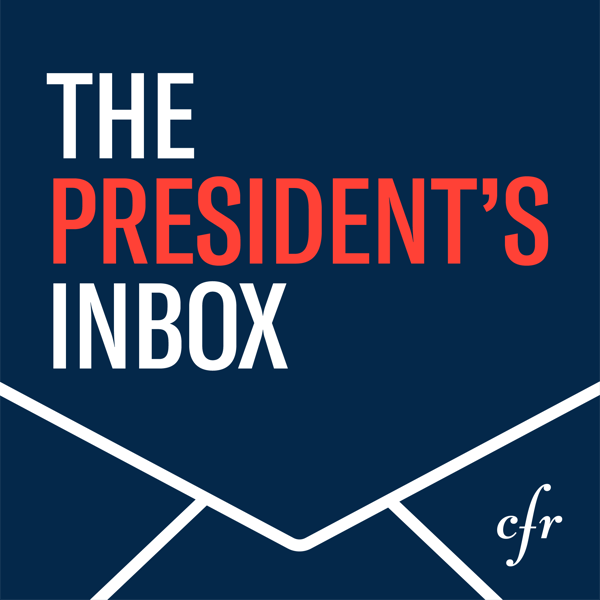The India-Pakistan Crisis, With Šumit Ganguly
The President’s Inbox
Council on Foreign Relations
4.5 • 698 Ratings
🗓️ 20 May 2025
⏱️ 33 minutes
🧾️ Download transcript
Summary
Transcript
Click on a timestamp to play from that location
| 0:00.0 | Welcome to the President's inbox. I'm Jim Lindsay, the Mary and David Boy's Distinguished Senior Fellow in U.S. foreign policy at the Council in Foreign Relations. This week's topic is the India-Pakistan Crisis. |
| 0:29.1 | With me to discuss the origins of the recent military clash between nuclear powers India and Pakistan and the durability of the current ceasefire is Shumit Ganguli. |
| 0:34.7 | Shumit is a senior fellow and directs the Huntington program on strengthening |
| 0:38.6 | U.S. India relations at the Hoover Institution at Stanford University. A specialist on the |
| 0:45.6 | contemporary politics of South Asia, he has written and edited 20 books on the region. He recently |
| 0:51.5 | wrote a piece for foreign policy titled, What is the Risk of a Conflict |
| 0:55.0 | Spiral between India and Pakistan? Shemit, thank you for joining me on the President's inbox. |
| 1:01.0 | Thank you very much, Jim, for this opportunity. |
| 1:04.0 | Shumit, the clash between India and Pakistan came two weeks after five armed terrorists |
| 1:09.4 | attacked and killed 26 people, mostly tourists, near Pahagam, |
| 1:14.8 | in the Indian-administered portion of Jammu in Kashmir. |
| 1:20.2 | What do we know about the attackers? |
| 1:22.6 | What we do know about the attacks is that based on their own admission, it was an organization called |
| 1:30.8 | the Resistance Front that carried it out. It is also known that the Resistance Front is an offshoot |
| 1:39.4 | of a well-known Pakistan-based terrorist organization, the Lashkari Taiba. |
| 1:46.2 | And since they claimed responsibility, there is no reason to believe that they were not |
| 1:53.7 | behind this attack. What was particularly striking about this attack is that they segregated men and women and then proceeded |
| 2:04.8 | to ask the men to recite certain key verses from the Quran. And if they failed to recite these |
| 2:13.8 | verses, they were shot in cold blood. Okay, so it was clearly a religiously motivated attack, |
| 2:20.2 | and you mentioned Lashkaa-Taiba. That was the same group responsible for the 2008 terrorist |
| 2:26.4 | attack in Mumbai that killed 166 people, correct? That is correct. It is the same organization |
| 2:33.6 | that was responsible for the November 2008 attack. |
... |
Please login to see the full transcript.
Disclaimer: The podcast and artwork embedded on this page are from Council on Foreign Relations, and are the property of its owner and not affiliated with or endorsed by Tapesearch.
Generated transcripts are the property of Council on Foreign Relations and are distributed freely under the Fair Use doctrine. Transcripts generated by Tapesearch are not guaranteed to be accurate.
Copyright © Tapesearch 2025.

